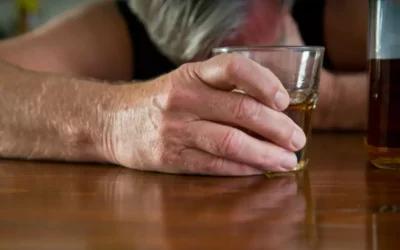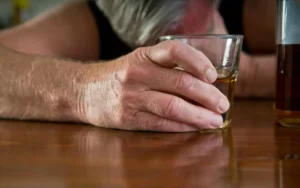
Results showed that integrated, trauma-focused interventions that address both disorders have the greatest benefit relative to treatment as usual (10) and other non-trauma focused, single-disorder, or control condition approaches (11). Over the past few decades, important advances have been made in behavioral treatments for comorbid AUD and PTSD. The most notable area of progress is the development of trauma-informed, manual-guided, integrated, cognitive behavioral treatments that concurrently address symptoms of both conditions. Before these developments, sequential treatment was the only form of behavioral intervention employed.
The Road to Healing From Alcoholism and Trauma
Putting our thoughts and emotions on paper gives us much-needed distance to start understanding and coping with what happened to us. Talking to a trusted friend or family member — as well as getting in touch with a trauma-informed therapist (more on that later!) — will keep the conversation going and provide us with the support we need. How do we go about healing from trauma that contributed to alcohol use? It’s all about understanding how trauma and alcohol use function in the brain.

What is Alcohol Use Disorder?
Going through a trauma—whether or not you develop PTSD—can lead to alcohol use problems. Up to three quarters of people who survived abuse or violent traumatic events report drinking problems. Up to a third of those who survive traumatic accidents, illness, or disaster report drinking problems. Alcohol problems are more common for those who experience trauma if they have ongoing health problems or pain. Our researchers at the Center for the Study of Alcohol Use Disorder and Traumatic Stress in NYU Langone’s Department of Psychiatry are striving to better understand the relationship between these two comorbid conditions. We also work to develop effective treatments for patients who have an alcohol use disorder and simultaneously suffer from post-traumatic stress.
Causes and Symptoms of PTSD
Under the guidance of Charles R. Marmar, MD, center director, our researchers use advanced and novel computational methods, biomarker analysis, and imaging approaches to further their knowledge. The center was established in 2019 thanks to a generous five-year grant from the National Institute on Alcohol Abuse and Alcoholism of the National Institutes of Health. It is never too late to seek help for PTSD or PTSD and co-occurring substance use.

Potential complications include anxiety disorder, depression, eating disorders, suicidal behaviors, and substance use disorders. Women are more likely to report symptoms of alcohol use disorders than men. Further, women are more likely to experience a traumatic experience due to disproportionately being affected by domestic violence, sexual abuse, and sexual assault. Women affected by PTSD are more likely to use alcohol after the trauma experience, whereas men seem to be more likely to use other substances. Victims of PTSD are more likely to develop alcoholism to self-medicate symptoms of trauma.
For many, trauma manifests as hypervigilance, re-experiencing the trauma, and other symptoms of post-traumatic stress disorder (PTSD). Although substance use is not an official symptom of PTSD, about 59% of people diagnosed with PTSD develop issues with substance use and dependence. Post-traumatic stress disorder (PTSD) and alcohol use too often go hand-in-hand. One can cause or increase the risk for the other, leading to a destructive cycle.
- Behavioral interventions are a primary component of the treatment of AUD and can be used as freestanding treatments or as part of a more comprehensive treatment plan that includes pharmacotherapies.
- And sometimes alcohol usage disorders are simply a comorbidity that appears alongside PTSD, without one necessarily causing the other.
- Being there for someone struggling with PTSD alcohol abuse can be emotionally challenging.

Effective treatment for PTSD focuses on going back to the original trauma and reliving and processing it in a safe environment. Avoidance is a surefire way to make PTSD last longer, and it makes treatment less effective. A helpful tip for socialising is to call ahead and inquire about alcohol-free options at the venue. With a knowledge of what you can drink, you’ll feel more at ease before arriving, making ptsd and alcohol abuse social interactions more enjoyable and stress-free. Remember, you’re embarking on a path of transformation, and every step forward is a testament to your strength and resilience.

Cognitive behavioral conjoint therapy

It could help inform treatments that are more effective based on gender. According to the National Center for PTSD, as many as three-quarters of people who have experienced violent abuse or assault report having issues with drinking later. Nearly a third of people who have gone through serious accidents, illnesses, or natural disasters develop drinking problems.
Whether it’s every weekend or more frequently, consider alternative plans to disrupt this habit cycle. Simple activities https://ecosoberhouse.com/ like going for a walk, calling a friend, or engaging in journaling or reading can be excellent substitutes. By retraining your brain to embrace positive actions during these times, you pave the way for healthier habits. Research reveals that individuals with PTSD are almost four times more likely to develop Alcohol Usage Disorders compared to those without PTSD.
